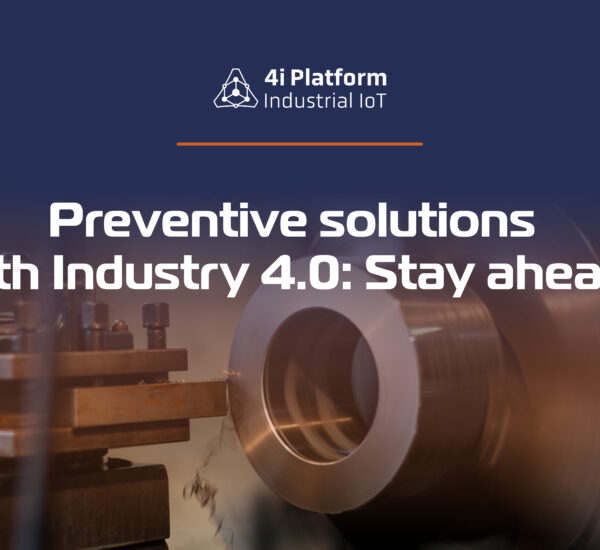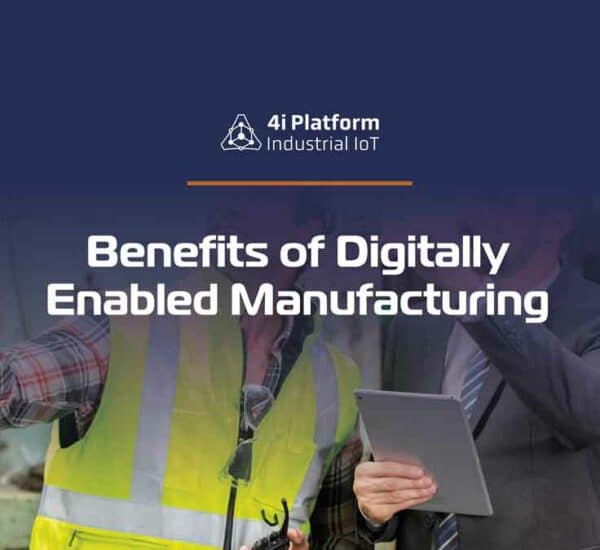When you think of the Internet of Things (IoT), the first thing that springs to mind is likely some kind of personal gadget. Maybe you have a wearable fitness tracker, a remote video monitoring system, a virtual personal assistant or are dreaming of having a driverless car.
IoT innovations in business aren’t limited to Fortune 500 enterprises. Small and mid-sized businesses (SMBs) are implementing IoT technologies as well. Here are just a few examples.
Remote Monitoring with Internet of Things Devices
The skilled labor shortage has arguably impacted the manufacturing industry more than any other business, and the use of robotics and monitoring systems is growing to help fill the gap.
Even many smaller job shops are leveraging automation to gain a competitive advantage. The IoT allows organizations to remotely monitor various parts of their operations to allow production to continue around the clock, even if employees aren’t on the factory floor.
Sensors, which used to be pricey, have come down in price in recent years and are now more accessible for the”little men.” These sensors are attached to machines to measure temperature, vibration, pressure and other mechanical components and can notify technicians if a set threshold is exceeded so they can perform preventive maintenance and avoid downtime. This kind of visibility into an operation increases productivity, efficiencies and product quality.
Inventory Management
The use of bar coding systems in inventory management has been in use for years. Some of these tracking systems, however, still required someone to physically scan individual parts to get an accurate count or location.
Warehouses and retail settings are becoming”smarter” as sensors come into play. Cost-effective RFID chips can be placed on goods and remotely connected to technology to create real-time visibility into product locations and quantities. Built-in GPS can even allow an organization to pinpoint an item’s location during transport.
An additional advantage of these types of tracking systems is in food storage facilities. By assigning sensors or radio-frequency identification (RFID) chips to food packaging, operations can be notified when a product is approaching its expiration date to minimize spoilage, informing decisions about product rotation and promotions to move it out the doors.
Mobility with the Internet of Things
Many small businesses are already seeing the advantages of the Internet of Things as it relates to working remotely. Workers can collaborate and engage with each other no matter where they’re located — from the sofa to Shanghai — and newer innovations will make mobility even easier in coming years.
Many SMBs also commonly use mobile devices to conduct business with IoT devices that connect to a smartphone to process payments on the go. Additional ways IoT devices aid SMBs is through video conferencing, apps and interactive whiteboards.
The IoT is helping mobile workers improve safety. Home healthcare workers who visit a number of locations and potentially unsafe environments, for example, can be proactively monitored by their companies with GPS trackers and easily communicate as needed.
Security
With the rewards of IoT come some risks. Cloud security remains a concern among digital devices. All that data flowing back and forth through networks and the Cloud can present opportunities for hackers to intercept it and steal information.
As is true with any safety measures, employees pose the greatest risks of exposing data. Policies should be put in place regarding the use of IoT and personal devices to help mitigate the risks.
Generally, however, when weighing the pros and cons of Cloud computing and IoT integration, the Cloud offers stronger security than traditional servers. As IoT innovations emerge, greater scrutiny will be given to making sure they’re secure.
Boost Overall Efficiencies & Productivity
Along with the Internet of Things comes incalculable amounts of large data that can help improve day-to-day operations. Something as straightforward as scheduling meetings becomes more efficient when data regarding room occupancy and employee logistics is much more visible.
Automatic reordering of office supplies based on tracked usage can cut down on waste and save time, and machine data can be used to identify opportunities for improving startup times or that shifts have greater output in a manufacturing facility. Energy efficiency can also be improved with smart lighting and heating systems that adjust automatically based on activity in a room. The list of potential improved efficiencies is endless.
The whole goal of technology is to make our lives easier, whether at home or in the workplace. Sometimes, however, technology can create added frustrations. For SMBs with limited IT staff, managing all these devices and ensuring secure connections can be overwhelming. You will need the right infrastructure and expertise to integrate the Internet of Things within your organization and prepare for future technology yet to be introduced.





